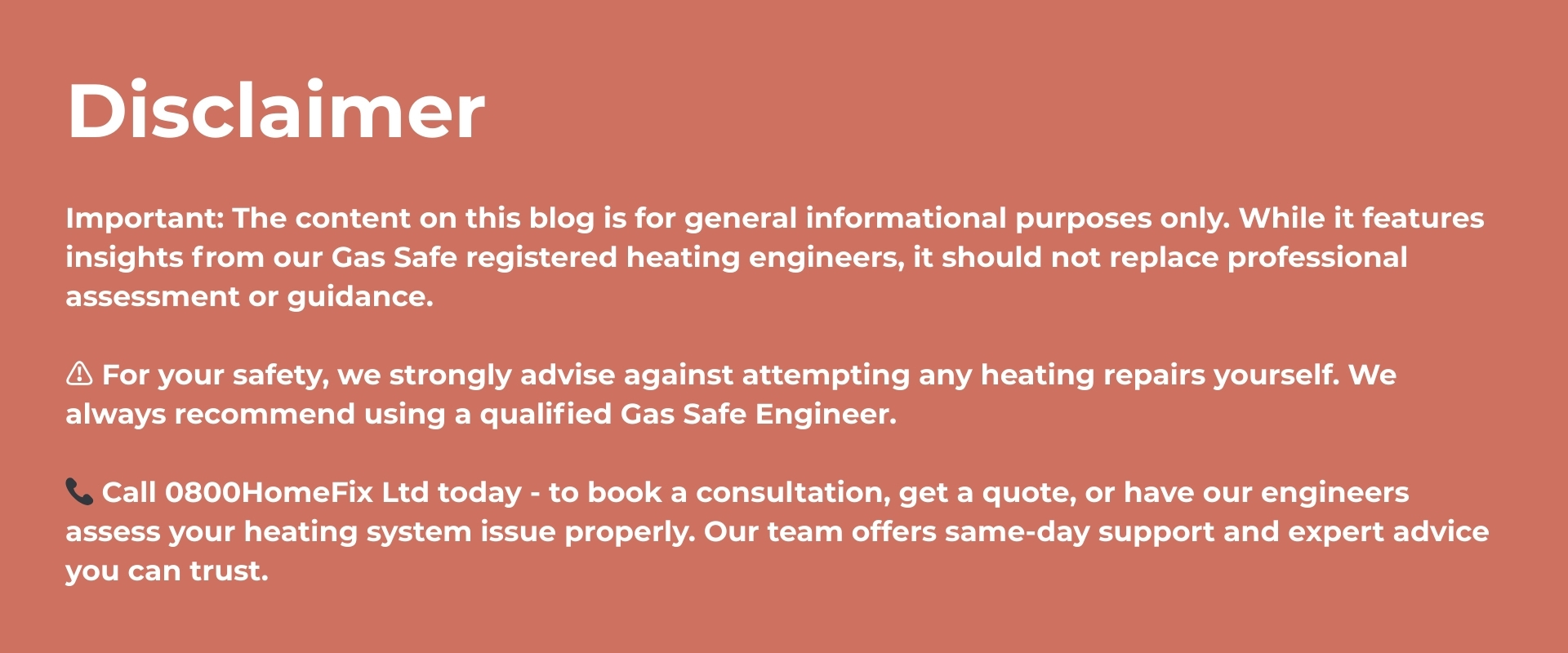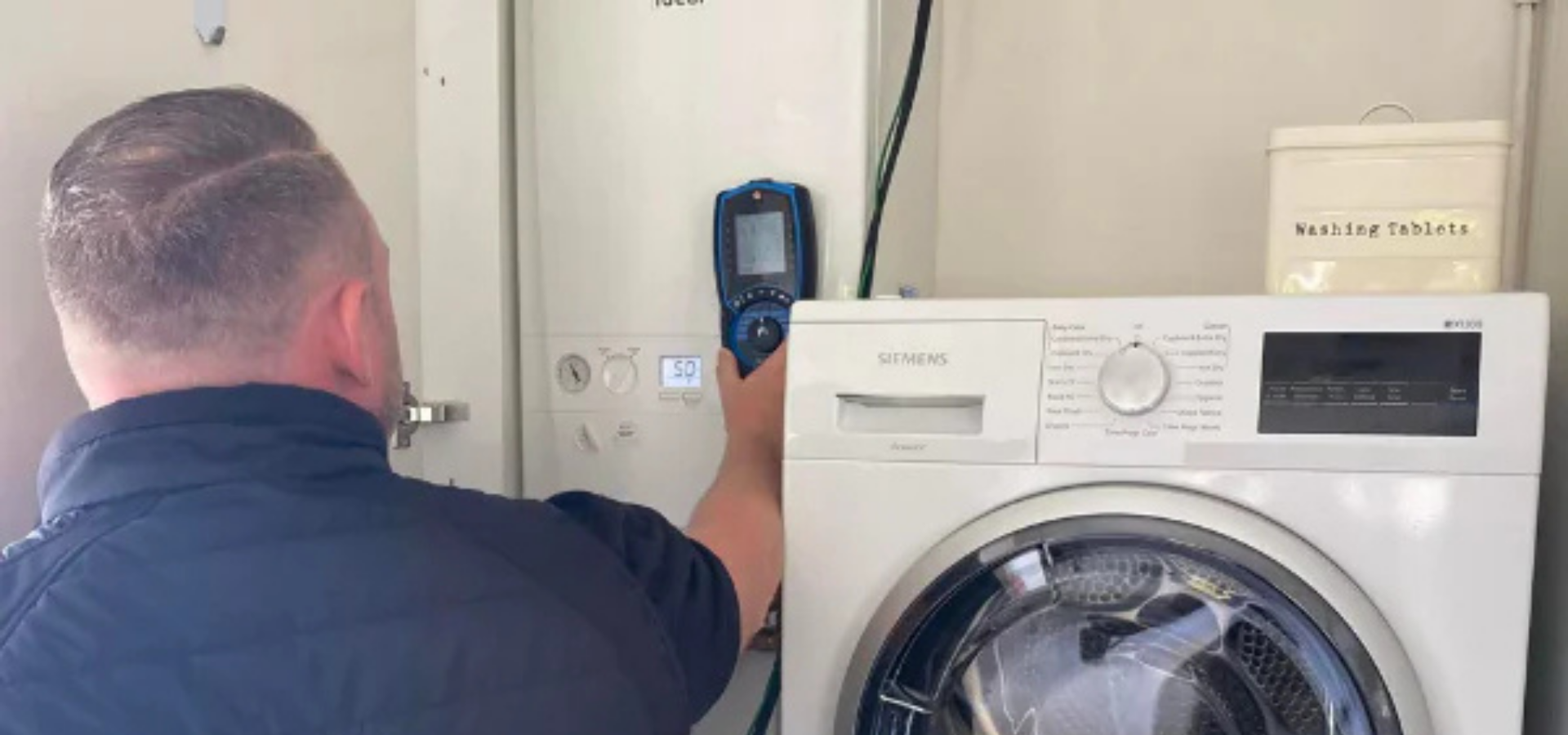

Relocating a boiler is a decision many homeowners in the UK consider when they want to make better use of space, reduce noise, or redesign the layout of their home. Whether you are converting a kitchen, renovating a bathroom, or simply tired of the boiler being in the way, moving it to a different room can make a big difference.
However, boiler relocation is far from a simple job. It involves pipework adjustments, strict safety regulations, and careful planning to ensure efficiency and compliance. Relocating a boiler requires careful planning to ensure all safety and efficiency standards are met.
Understanding the process, costs, and benefits will help you decide whether moving your boiler is worthwhile, and when to bring in trusted professionals like gas safe engineers at 0800 Homefix. When planning a boiler relocation, several factors must be considered, such as safety, regulations, and system compatibility.
Introduction to Boiler Relocation
The decision to move a boiler is usually driven by lifestyle improvements. Relocating can free up space in kitchens or utility rooms, reduce the noise of an older system, and even improve property value by creating a more streamlined layout.
That said, relocation and boiler installation must follow strict safety standards and be carried out by a qualified professional. Every boiler, whether Worcester, Vaillant, Ideal, Baxi, or Potterton, requires a flue for safe ventilation, proper pipe connections, and sufficient access for servicing. Any oversight can compromise both safety and efficiency.
Relocation is also an opportunity to upgrade to a modern, more energy-efficient boiler. If your system is more than 10–15 years old, combining relocation with replacement could save on long-term costs while reducing your carbon footprint.
Proper boiler installation is essential for ensuring safety and efficiency in your home.
Assessing the Existing Boiler
Before moving a boiler, it’s essential to assess whether your current unit is suitable for relocation. Start by checking its age and condition. Relocating an older boiler may not be cost-effective, as you could be paying for significant pipework changes only to replace the boiler a few years later.
Evaluate the boiler type. Combi boilers are usually easier to relocate because they are compact and don’t require external tanks. Regular and system boilers, including regular boilers (also known as conventional boilers), are more complex to move due to their reliance on a hot water cylinder or large water storage cylinder, as well as additional external components. The need for these cylinders impacts where regular and system boilers can be installed or relocated within a property.
The condition of existing pipework also matters. Corroded or outdated materials may need replacement, which can increase the cost of relocation but improve overall system efficiency.
Combi Boiler Considerations
Combi boilers are the most common choice for UK households and are often easier to move. Their smaller size makes them ideal for homes with limited space, as they can fit into new locations such as utility rooms, garages, or even airing cupboards. Utility rooms are particularly beneficial for combi boiler relocation because they offer a practical, space-saving solution while allowing for proper support, ventilation, and compliance with safety regulations.
When relocating a combi boiler, you will need to factor in:
- Installation of a new flue in the external wall or roof.
- Ensuring adequate ventilation in the new room.
- Adjusting or rerouting pipework for heating and hot water.
Because combi boilers heat water on demand, positioning close to the main bathrooms or kitchens can reduce water wastage and improve efficiency. A poorly chosen location could result in longer wait times for hot water.
Other Boiler Types
System and conventional boilers, such as system boilers and regular boilers, come with additional challenges. These types of boilers often require a feed and expansion tank or water tanks, and the presence of an expansion tank is necessary for proper operation. They require larger infrastructure, including cylinders and tanks, which may not fit easily into alternative rooms. Moving a system boiler or regular boiler may require additional components and more pipework, increasing both the complexity and cost of the relocation. Additional pipework is often necessary when relocating these types of boilers, as extensive pipework adjustments are typically involved, which can drive up costs significantly.
Oil boilers also have special requirements, such as safe storage of fuel and adherence to building regulations. Both oil and gas systems must be moved by certified professionals with the correct training.
Benefits of Relocation
Relocating your boiler offers several advantages. Freeing up kitchen space can create room for new appliances or additional storage. Moving a noisy boiler away from bedrooms can improve comfort.
Accessibility is another key benefit. If your current boiler is tucked away in a hard-to-reach corner, relocating it can make servicing and repairs easier, saving time and labour costs in the future.
Relocation also presents the chance to upgrade to a more energy efficient boiler. Modern energy efficient boilers use less fuel and offer improved performance, resulting in lower running costs and enhanced energy efficiency. Upgrading to an energy efficient boiler during relocation can cut energy bills, reduce carbon emissions, and improve heating performance. Installing an energy-efficient combi boiler or even considering alternatives like an air source heat pump can future-proof your home.
Understanding Combi Boilers
Because combi boilers are so widely used in the UK, it’s worth highlighting why they are often the best candidates for relocation. A combi boiler combines hot water and heating in a single unit, eliminating the need for separate tanks.
Moving a combi boiler within the same room or along the same wall is often simpler and less costly, as it usually requires fewer modifications and less pipework.
If you’re considering relocating your combi boiler, think about:
- The cost of installing a new flue.
- Whether pipework can be rerouted easily.
- The effect on hot water delivery times.
Combi boilers also tend to be more energy-efficient than older traditional boilers, so relocating may coincide with upgrading to a newer A-rated model.
Current Boiler Situation
One of the most important steps is evaluating your current boiler setup. If your boiler is still relatively new and efficient, relocation may be worthwhile. However, if you have a G rated boiler, investing in a replacement boiler may be more beneficial than relocating, as G-rated boilers are old and less efficient. A replacement boiler can offer better efficiency and reliability. If your boiler is over a decade old and beginning to show faults, investing in a replacement may be more cost-effective.
Assess your heating system as a whole. Old pipework, radiators, or valves may not work efficiently with a relocated boiler. 0800 Homefix can carry out a full system assessment to help you decide whether relocation, replacement, or both are the right choice.
Energy Efficient Options
If you are relocating, it’s worth considering energy-efficient alternatives. Condensing boilers are now standard in the UK and offer excellent efficiency. According to the Energy Saving Trust, upgrading to a new boiler can significantly reduce your energy bills and carbon emissions. You could also explore renewable options, such as air source heat pumps, if your property is suitable.
Energy-efficient upgrades, such as having a new boiler installed by a professional, can reduce bills, cut emissions, and future-proof your home against rising energy costs. While the upfront cost may be higher, the long-term savings and improved reliability often justify the investment.
Boiler Flue Installation
One of the most critical aspects of relocation is the boiler flue. The flue system expels harmful waste gases safely outside. If moving the boiler, a new or relocated flue system must be installed in compliance with building regulations to ensure proper ventilation and safety.
The type, size, and position of the flue will affect cost and feasibility. Horizontal flues (through a wall) are usually simpler and cheaper than vertical flues (through the roof). If relocating the boiler to a loft or upper floor, a vertical flue may be required, which can involve additional considerations such as roofing modifications and extra installation costs. It is also important to ensure the condensate pipe is correctly installed during relocation to comply with safety regulations and maintain proper boiler function.
Because flue installation directly affects safety, this must be handled by a gas safe registered engineer. Attempting DIY flue work is both dangerous and illegal.
Cost of Boiler Relocation
The cost of moving a boiler varies significantly depending on:
- The type of boiler.
- The distance of relocation (moving a few feet vs moving to another floor).
- The complexity of rerouting pipes and flues.
Boiler costs and relocation costs can vary depending on several factors, such as whether you have a conventional or modern condensing boiler, the distance the boiler is being moved, and the amount of new pipework required. Understanding the full boiler cost, including installation and potential upgrades, is important for accurate budgeting.
On average, relocation can cost anywhere from £500 to £3,000, with additional costs if replacing the boiler or upgrading pipework. Materials, labour, and regulatory compliance all contribute to the final figure.
While this may seem high, combining relocation with a new energy-efficient boiler can deliver significant savings in heating bills over time.
Airing Cupboard Considerations
Many homeowners choose to relocate boilers to airing cupboards. These provide a tidy, convenient space that also allows easy access for servicing. Relocating a boiler to an airing cupboard can also help maximise cupboard space in the home, making it a practical storage solution.
However, ventilation must be adequate, and the location must comply with building regulations. Professional assessment ensures safety is not compromised.
Additional Costs
Relocation often uncovers hidden costs. New pipework, flues, or electrical connections may be required. Additional components and additional pipework may also be necessary, contributing to higher costs. Old boilers may need removal and disposal.
It’s wise to budget for additional expenses beyond the quoted price, particularly if you live in an older property where hidden pipework issues may arise.
Boiler Take and Removal
Removing the old boiler is a necessary step. If you are dealing with an older boiler, this is also an opportunity to ensure the new system is installed correctly by a qualified professional. Disposal must comply with environmental regulations, and safe disconnection is vital to prevent gas leaks or electrical hazards.
This stage should always be handled by qualified professionals such as 0800 Homefix engineers, who ensure removal is safe, efficient, and compliant.
Relocation Process
The process of moving a boiler involves:
- Assessing the boiler’s suitability for relocation.
- Designing the new installation plan, including selecting the new location for the boiler.
- Installing new pipework and flues, with careful attention to correctly positioning the waste pipe to ensure safe venting and drainage.
- Safely removing the old boiler.
- Testing and commissioning the relocated system.
At every stage, safety checks are critical to ensure the system operates correctly and complies with Gas Safe regulations.
Relocating a boiler to a different floor may affect hot water delivery to downstairs taps, potentially causing delays and increased energy consumption due to longer pipe runs.
Hiring a Professional
Relocating a boiler is never a DIY job. It requires certified expertise, specialist equipment, and compliance with building and gas regulations. A qualified professional heating engineer should always handle gas boiler relocation to ensure all safety and regulatory requirements are met. Hiring a gas safe engineer ensures the move is completed safely and efficiently.
0800 Homefix offers professional boiler relocation services, including full assessments, installation, and upgrades. Their expertise guarantees both safety and long-term performance.
Planning and Preparation
Proper planning is key to successful relocation. Homeowners should consider:
- The type of boiler they own.
- The age and condition of the system.
- Pipework and flue requirements.
- Accessibility for future servicing.
- If relocating to a loft space, ensure proper frost protection is in place to prevent freezing, and install a carbon monoxide detector for safety.
Relocation may also be the right time to consider upgrading insulation, radiators, or smart controls for maximum efficiency. 0800 Homefix can guide you through planning, providing honest advice and tailored solutions.
FAQs
Q: Is it worth moving an old boiler?
A: If your boiler is over 10 years old, replacing it during relocation may be more cost-effective.
Q: How much does it cost to move a boiler?
A: Costs range from around £500 to £3,000 depending on distance, complexity, and type of boiler.
Q: Can I move a boiler into a bedroom?
A: Regulations allow it, but strict ventilation and noise considerations apply. Only room sealed boilers are considered safe for bedroom installation, as they prevent fumes and carbon monoxide from entering the room. Always consult a professional.
Q: Do I need planning permission to move a boiler?
A: Not usually, but installation must comply with Gas Safe and building regulations.
Q: Can I move a combi boiler to the loft?
A: Yes, but it requires insulation, lighting, access ladders, and compliance with building regulations.
Q: Who should move my boiler?
A: Only gas safe registered engineers can legally relocate boilers.
Final Word
Moving a boiler to a different room can be a smart way to free up space, reduce noise, and improve your home’s layout. But it is a complex task requiring expert planning, regulatory compliance, and professional installation.
Whether you want to move a combi, system, or conventional boiler, calling 0800 Homefix ensures the job is done safely and efficiently, with the option to upgrade to a more energy-efficient system that cuts costs and improves comfort.
The Energy Saving Trust is a leading UK organization offering independent advice on home energy efficiency, heating upgrades, and boiler standards. Their comprehensive guides explain best practices for safe, legal, and efficient boiler relocation, covering compliance with building and safety regulations, cost factors, and energy saving benefits. For impartial guidance, visit the Energy Saving Trust’s heating advice section for Further info: https://energysavingtrust.org.uk/advice/boilers/

